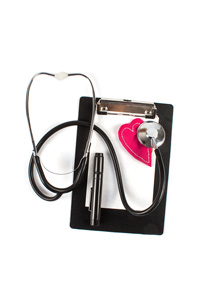What Do Nurses Do? A Guide to the True Role of Nursing
What do nurses do on a regular basis? And should they receive more recognition for it? Many people have trouble answering such questions. After all, nursing isn't something that the average person thinks much about until they (or a friend or loved one) require expert care due to illness or injury. In a lot of cases, people simply believe common or outdated stereotypes about nurses even though many of them aren't true.
Here's the reality: Nursing care is a complex profession. In fact, most nurses probably do a lot more than you realize. They may not get the same amount of media attention as physicians or surgeons, but they are every bit as important. And they often possess expertise that those other healthcare professionals don't have.
That's why nurses absolutely deserve everyone's respect and admiration. Without them, every hospital would cease to function, as would most other types of health and medical facilities. Nursing is one of today's highest callings, and it makes the world a much better place.
Yet, the history of nursing is filled with examples of physicians and patients who misunderstood what nurses do. Even today, a lot of people—both within and outside of the healthcare sector—are confused about the roles and practical powers that nurses have.
This article aims to address that confusion and show why nursing careers are among the most honorable, influential, and worthwhile occupational options on the planet. It includes the following sections:
What Is Nursing, and What Is the Philosophy Behind It?
 The definition of nursing has evolved over time. The word nurse has roots in the Latin words nutrire and nutrix, which mean "to feed or nourish" and "nursing mother," respectively. In fact, during ancient times, nurses' roles were often extensions of the functions of women who cared for and breastfed other women's children. Nursing was part of parental and family care.
The definition of nursing has evolved over time. The word nurse has roots in the Latin words nutrire and nutrix, which mean "to feed or nourish" and "nursing mother," respectively. In fact, during ancient times, nurses' roles were often extensions of the functions of women who cared for and breastfed other women's children. Nursing was part of parental and family care.
Over the centuries, nursing concepts and practices expanded greatly. Some of the world's most popular religions made it part of their charitable missions to care for those who were sick or dying. And military conquests also produced a large need for people who could help comfort and tend to the wounds of injured soldiers.
The professional nursing of modern times has its foundations in the work of 19th-century German and British nurses. Florence Nightingale, an English nurse, was arguably the most influential among them. She helped define nursing as a true profession that you could go to school for. She helped introduce the idea of caring for the whole person by paying attention to the mental and emotional side of healing in addition to the physical side. And she believed that nurses had a duty to act as strong advocates for their patients.
So, in today's terms, what is a nurse? Today, nurses are members of a distinct, self-governing profession that is based on the art, science, and technology of care and healing. Nurses (both male and female) focus on promoting, protecting, and optimizing the health and well-being of their patients, regardless of age, ethnicity, religion, social class, or lifestyle. They help alleviate suffering, facilitate healing, and prevent new injuries and illnesses from occurring while speaking up and advocating for the needs and rights of their patients.
Every professional nurse is trained to apply that modern nursing philosophy to their job. At the same time, many nurses are also guided by their own personal philosophy of nursing that addresses their individual goals in areas such as professionalism, accountability, and compassion. They make promises to themselves about treating others with respect, working without prejudice, adhering to high standards, being kind, helping patients feel a sense of dignity, avoiding mistakes, promoting human connection, and meeting other types of goals.
What Does a Nurse Do? An Overview of the Nursing Process
At its core, modern nursing is held together by five common elements of practice. In their mission to deliver preventive or restorative care, nurses follow a process that includes:

- Assessing patients: Collecting and analyzing information about their patients' physical conditions as well as their patients' responses to those conditions as influenced by social, psychological, spiritual, lifestyle, and economic factors
- Making clinical judgments: Identifying their patients' symptoms and responses as well as their ongoing needs based on potential problems or complications
- Planning: Creating detailed and accessible care plans (that include assessment information and clinical judgments) by setting achievable goals and outcomes that can be measured and charted over time
- Implementing care plans: Putting care plans into effect for their patients while ensuring that those plans are not disrupted
- Evaluating care plans: Continuously monitoring the status of patients and determining whether or not their care is effective or needs to be modified
Different Types of Nursing Careers and What They Involve
The field of nursing is incredibly varied. Many career paths are available, especially for those who continue to further their education. Plus, the specific tasks and responsibilities of nurses can sometimes vary significantly between different states or individual health facilities. Some of the most common types of nursing professionals include:
- Licensed practical or vocational nurses (LPNs or LVNs): In most of the country, this type of nurse is known as an LPN. However, in two states (Texas and California), this kind of nurse is called an LVN. As of 2016, LPNs and LVNs accounted for about 19.7 percent of all employed nurses in the U.S., according to the Bureau of Labor Statistics (BLS). These nurses work under the direction of registered nurses, advanced practice nurses, or other healthcare professionals. They do a lot of the basic, routine, and hands-on work that most people identify nurses with. For example, practical nurses often administer medications, give injections, collect blood samples, check blood pressure, take temperatures, measure weight and heart rates, clean open wounds, change bandages, insert catheters, and help patients bathe and get dressed.
-
Registered nurses (RNs): These nurses accounted for about 80.3 percent of all employed nursing professionals in the U.S. in 2016, according to the BLS. Like LPNs, many RNs provide bedside care. However, they tend to wear many other hats as well, and their individual roles often vary widely depending on the types of facilities they work in. Most registered nurses are responsible for educating, comforting, and coordinating care for their patients while supervising LPNs and nursing assistants. They also keep accurate and up-to-date records of their patients' conditions and collaborate with physicians and other non-nursing professionals. Some RNs with at least a bachelor's-degree level of education move into managerial positions such as:
- Charge nurse: Responsible for managing and coordinating day-to-day staffing and clinical patient care for a nursing unit during specific shifts.
- Nurse manager or head nurse: Has around-the-clock responsibility for one or more nursing units and oversees clinical patient care, staffing decisions, scheduling, and consultations with physicians and other healthcare providers.
-
Advanced practice registered nurses (APRNs): These RNs have at least a master's-degree level of education, and some have doctoral degrees. So, what is the role of a nurse at this level? Typically, an APRN will take on one of the following roles:
- Certified nurse midwife (CNM): Provides care to healthy pregnant women who are at low-risk of complications before, during, and after giving birth.
- Clinical nurse specialist (CNS): Helps improve nursing care and patient outcomes in various healthcare settings through research, mentorship, or consultation related to system changes, evidence-based practices, ethical decision-making, and other relevant factors.
- Nurse practitioner (NP): Offers a wide variety of health services, including disease prevention, medication prescription, and the diagnosis and treatment of many kinds of injuries and illnesses.
- Certified registered nurse anesthetist (CRNA): Administers anesthesia to patients before surgical operations, monitors their vital signs during surgery, and oversees their recovery from the effects of anesthesia after surgery. Every year, over 65 percent of anesthetics are administered to patients by CRNAs.
- Nurse educators: These nurses teach and prepare other people for LPN and RN careers. Many of them specialize in teaching particular areas of nursing, and some of them help experienced nurses prepare for more advanced roles.
- Executive-level nursing professionals: These experienced and well-educated nurses are typically in charge of directing and overseeing all nursing activities in the facilities where they work. Their roles are primarily administrative in nature and include managing nursing staff, making decisions about staffing levels, handling budgets, and acting as a communication link between nursing staff, physicians, and other high-ranking managers and executives. Common job titles for this role include director of nursing (DON), chief nursing officer (CNO), and chief nurse executive (CNE).
A lot of registered nurses pursue careers that are focused on caring for specific types of patients. For example, they might specialize in caring for those who are:
- Elderly
- Newly born
- Under the age of 18
- Trying to overcome addictions
- Experiencing traumatic emergencies
- Undergoing intensive care for very serious conditions
- Being treated for chronic diseases like cancer, diabetes, or HIV/AIDS
- Getting ready to die peacefully
- Receiving psychiatric care
- Being rehabilitated from injury or disability
- Recovering from open-heart surgery
- Awaiting organ transplants
Nurses are also employed in an extensive variety of clinical and non-clinical work settings. Here's a partial list of examples:
- Hospitals
- Nursing homes and residential care facilities
- Community health centers
- Medical clinics and physicians' offices
- Outpatient care centers
- Schools
- Prisons
- Homeless shelters
- Research institutions
- Private nurse practitioner offices
- Insurance companies
- Cruise ships
- Military environments
- Emergency airlift planes and helicopters
- Sports stadiums and arenas
- Summer camps
- Ski resorts
What Nurses Do That Many People Overlook
 The average medical patient spends relatively little time with their physicians, especially when being cared for in the hospital. That's because nurses are the primary caregivers. They strive to treat their patients like family. And they often take on a lot more than most people realize.
The average medical patient spends relatively little time with their physicians, especially when being cared for in the hospital. That's because nurses are the primary caregivers. They strive to treat their patients like family. And they often take on a lot more than most people realize.
In fact, nurses are autonomous professionals who only report to other nursing professionals. Within hospitals and many other settings, they do not report to physicians, and they are not subordinate to them either. Rather, they collaborate with non-nursing healthcare providers and challenge physicians when it is in their patients' best interests to do so. After all, they can be held liable in a malpractice lawsuit even if they administered treatment exactly as a physician prescribed it. They have their own duty to ensure that the care they provide is safe and effective. And they are responsible for seeking out and advocating for better solutions when necessary.
That's what a lot of movies and television shows don't accurately portray. They often show physicians and surgeons as the main heroes with authority over nurses. And they frequently don't show all of the exciting, emotional, and dramatic moments that nurses actually get to experience. For example, as part of their jobs to help patients, nurses may:
- Catch and prevent fatal errors
- Discover and stop lethal infections
- Strongly resist or refuse to carry out potentially dangerous treatment plans
- Persistently negotiate with prescribing physicians for safer treatments
- Remove intoxicated surgeons from operating rooms
- Identify important symptoms that physicians have failed to notice
- Detect life-threatening heart rhythms and perform defibrillation (i.e., controlled electric shock)
- Report unsafe, unethical, or disruptive behavior to the appropriate authorities
- Hold their patients' hands to reassure them
- Translate what physicians say into words that are easier to understand for their patients
- Attend to patients who are in extreme emotional states
- Convince patients to embrace psychiatric help when necessary
- Persuade extremely sick patients that life is worth fighting for
- Handle violent patients while waiting for security
- Perform triage (i.e., assign degrees of urgency to illnesses and injuries) in the emergency department
- Supply adequate levels of pain medication to patients who are close to dying
- Provide health services to people in disadvantaged communities
- Advocate for higher staffing levels in order to ensure better care for their patients
- Participate in the research and shaping of better health policies
- Fight for the creation of healthcare systems that are more patient-friendly
Why Become a Nurse?
This question might be more important than you know. Your motivation for entering the nursing field can make all the difference between whether you thrive in the profession or lose interest. One thing that most experienced nurses agree on is that money shouldn't be your main motivation. Instead, when asking yourself "Is nursing for me?" try to imagine the following aspects of the job and how they would make you feel:
- Getting to care for vulnerable people during their times of need
- Taking on new challenges every day
- Regularly setting new goals and actively trying to achieve them
- Never knowing exactly what to expect each day
- Interacting with your patients' family members
- Being a part of many people's most meaningful and emotional moments
- Staying very busy throughout almost every shift
- Gaining a more vivid appreciation for the value of life
- Being scheduled for 12-hour shifts
- Accepting responsibility for the care and well-being of other people
- Getting attached to special patients who may or may not fully recover
- Being offered a lot of overtime
- Helping people of every age and walk of life
- Learning new things every day
- Having the opportunity to work full- or part-time
If most of the aspects listed above don't make you feel motivated to give this field a shot, then why be a nurse? After all, you can always choose from many other great career options in healthcare. And those options often pay well and require relatively little training.
That said, nursing salaries are definitely compelling. Compared to many other occupations, nursing careers frequently offer better earning potential. But a lot depends on your experience, geographic location, education level, and specialty.
To give you a better idea of the salary potential, consider the median salaries of different kinds of nurses. (Half of all employed workers in a particular field earn below the median amount, and the other half earn above it.) Here are the national median salaries for the most common types of nurses:*
- Nursing Assistants and Orderlies: $30,290
- LPNs and LVNs: $48,070
- Registered nurses (RNs): $77,600
- Nurse midwives: $112,830
- Nurse practitioners: $120,680
- Nurse anesthetists: $195,610
What Becoming a Nurse Entails
 The first decision to make concerns whether to become an LPN/LVN or an RN. Those are the two most basic kinds of nurses. They each require formal training and licensure.
The first decision to make concerns whether to become an LPN/LVN or an RN. Those are the two most basic kinds of nurses. They each require formal training and licensure.
On average, LPN/LVN programs take about a year to complete. In contrast, RN programs tend to take between two and four years, depending on the degree you want. Completing a two-year RN program usually results in an Associate Degree in Nursing (ADN). Completing a four-year program usually results in a Bachelor of Science in Nursing (BSN) degree.
A lot of people ask, "What is nursing school like?" They want to know how hard nursing school is for people like them. The best answer seems to be that nursing school is challenging but also rewarding. You will work hard and be pushed by your instructors and fellow students to go beyond what you think you're capable of accomplishing. In the end, though, the experience tends to produce a tremendous feeling of pride.
After completing your education, you need to pass a licensure exam. Every state in the U.S. has its own board of nursing that sets the requirements for becoming a licensed nurse, which can sometimes vary a little. However, what each state shares in common is that they require nursing graduates to pass the National Council Licensure Examination (NCLEX). The NCLEX comes in two versions: one for LPNs/LVNs and one for RNs.
Once you are licensed, you can start applying for entry-level nursing jobs. At this point, some newly licensed nurses encounter the conundrum of employers preferring to hire experienced nurses. That's why it's a good idea to do as much research on potential employers in your area as you can before sending out your resume. Get to know what they're looking for. Talk to some current or former employees to get a feel for each workplace.
During your research, you might discover that certain hospitals or nursing facilities have residency programs for newly licensed nurses. They provide paid positions for novice nurses who need to gain more real-world experience. After about a year, they often result in permanent, full-time positions.
Another way to stand out in the job market is to earn a BSN degree since many employers prefer nurses who have at least that level of education. But keep in mind that you can always go back to school to earn your BSN, even if you are an LPN/LVN or an RN with a diploma or associate degree. Many LPN/LVN-to-BSN and RN-to-BSN bridge programs are available to help licensed nurses attain the more advanced credential. And they are often designed to allow working nurses to take advantage of them.
Start Doing What You're Meant to Do
North America has an abundance of nursing programs. So you likely have good options to choose from in your area. Quickly find nearby training options right now by putting your zip code into the following nursing school finder!
* Unless otherwise noted, salary information is based on May 2021 data from the Occupational Employment and Wage Statistics (OEWS) program.



